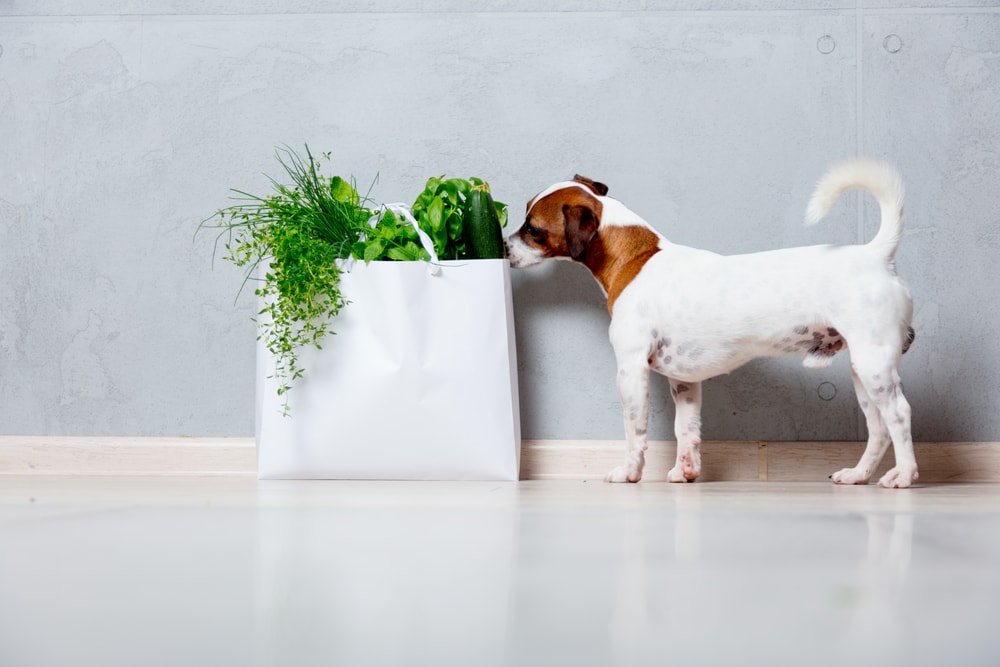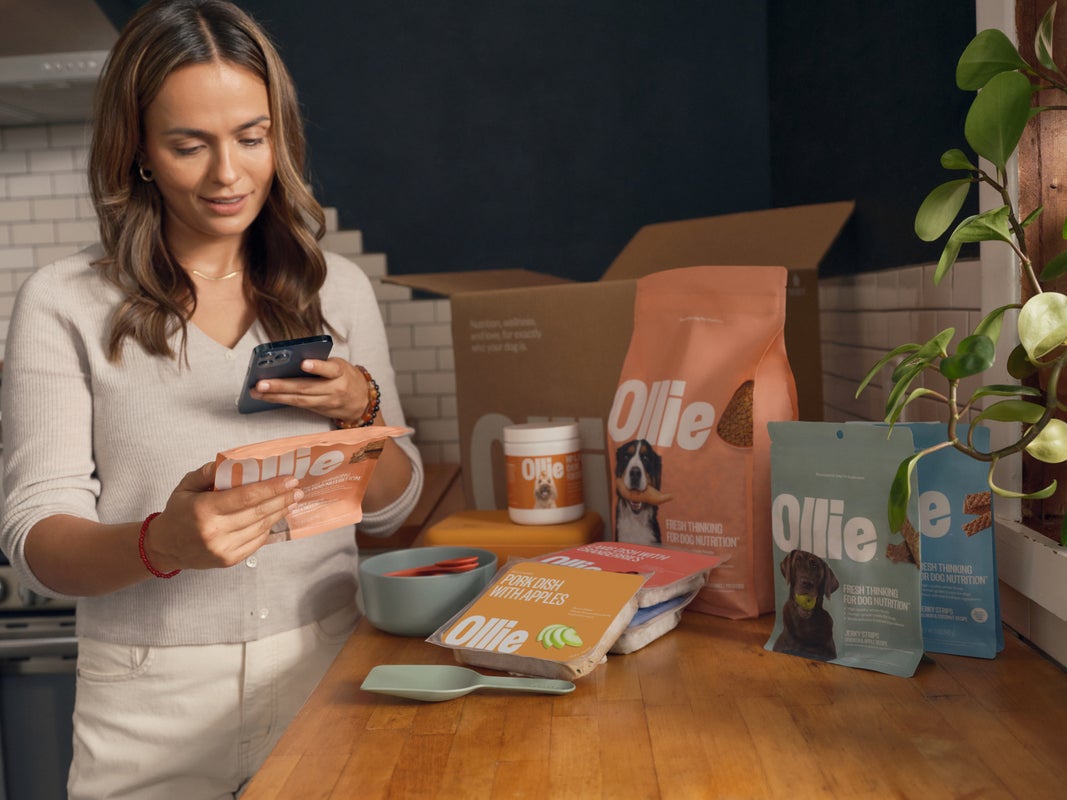Hey Ollie blog readers! We’re offering you an exclusive 60% OFF your starter box! Try now!
The word “superfoods” for dogs have come to define fresh, natural foods like vegetables, fruits, meats, and grains that can do it all. You might be familiar with the idea of superfoods for humans, and the same concept applies to our furry friends. These foods are packed with vitamins and nutrients that pack a serious antioxidant punch to make your dog more healthy from the inside out.
Superfoods are part of a balanced diet for your dog and the best part is, many of these human-friendly foods are probably in your kitchen right now. Here are 10 totally safe-to-share-with-doggy superfoods. And yes, you are going to be one of those people who gives superfoods to their dog. Just own it.
10 Best Superfoods for Dogs
1. Quinoa
This old-world grain is just as amazing for dogs as humans. A gluten-free starch that is rich in essential amino acids, protein,complex carbohydrates, and fiber. This superfood is perfectly fine to let the dog lick off your plate and could be a good option to supplement his diet if he needs to drop a few pounds. Quinoa offers a lot of feeling-full-longer bang for the buck. Always remember to give your dog minimally-prepared quinoa here (water or broth and a pinch of salt). Avoid recipes that add spices or onions as these additives can be toxic for dogs.
2. Sardines
This fishy superfood for dogs is packed full of omega-3. And your dog could probably use more of these magical fatty acids that improve skin and coat, reduce inflammation and boost the immune system and brain functioning. If your time and budget don’t allow freshly prepared wild-caught fresh salmon for your dog, a simple tin of sardines is a healthy, affordable alternative that your dog will love. Eating fish a few times a week (don’t overdo it) will make your dog’s system sing. Pro tip: opt for water-packed, salt-free sardines. Otherwise, all that added salt and fat will counteract the good you’re doing in the first place.
3. Raw, local honey
Honey is a virtual gold mine for dogs who suffer from allergies. Why? Because your local bees include trace amounts of local pollen in their honey batches, which when ingested by your dog, help combat allergies inoculation-style for your pooch. Plus, honey is rich in live enzymes, vitamins, and antibacterial properties aiding immune function and digestion. One teaspoon a day for small dogs, a tablespoon for the biggies. Pro tip: raw and local are the keywords here, so skip the chain stores and opt for your local farmer’s market.
4. Blueberries
One of the few berries that are actually safe for dogs to eat, blueberries boast all sorts of benefits for dogs: antioxidants, fiber, vitamin C and phytochemicals. Perfect as an occasional treat, a small palmful is not only a superfood for your dog, but the berries are the ideal size for perfecting that place-the-treat-on-the-dog’s-nose party trick. Win/win. Pro tip: dogs love frozen blueberries for a cold, crunchy treat.
5. Pumpkin puree
Here’s a reason to be obsessed with pumpkin: it’s puree is practically miraculous when it comes to your dog’s digestive system. This high fiber, low-fat superfood is loaded with beta carotene, magnesium, potassium, iron, zinc and vitamins A and C. Pumpkin puree is the go-to home remedy for constipation, diarrhea and even accidental table-scrap hangovers. Pro tip: depending on the size of your dog, mix a small to large dollop of puree with dry food. Think of it in terms of a human-to-guacamole-ratio and you’ll nail the portion size, or try mixing it into a homemade treat.
6. Chia seeds
These seeds are an ultimate dog superfood. They’ve got plant-based omega-3’s, antioxidants, fiber, calcium, phosphorus, magnesium, manganese, copper, molybdenum (yes, that’s a real word), niacin and zinc. Pro tip: sprinkle a spoonful onto wet or dry food, or stir it into some of that luscious pumpkin or kefir.
7. Kefir
This Euro-chic superfood for dogs is sort of like runny yogurt (it’s basically fermented milk), but with probiotics that are one of the easiest and least expensive ways to get healthy bacteria into your pet. A spoonful with your dog’s meal is perfection. Pro tip: go full-blown Martha Stewart and make kefir yourself. It’s actually quite simple.
8. Sunflower oil
This oil pressed from sunflower seeds features a great balance of fatty acids (including omega-6), not to mention vitamin E for a healthy skin and coat, and various anti-inflammatory and heart-healthy capacities. Pro tip: no need to serve straight up sunflower oil shooters to your dog, but if you’re baking homemade dog biscuits for Fido’s birthday, opt for this oil over vegetable or canola.
9. Kale
There’s a reason why kale is the most popular kid at the superfood table. This cruciferous leafy green is so good for you and your dog), it gets invited to all the recipes. Not only does it aid liver function and anti-inflammation, it is Zuckerberg-level RICH in vitamins K, A and C, iron and antioxidants. Plus, when mixed with other foods, it tends to take on their flavor, rather than fight for all the attention. Pro tip: add 1-3 finely chopped tablespoons of kale to your dog’s food daily. Sprinkle it with a little water and microwave it for 10-20 seconds to wilt it slightly if your dog is suspicious of it raw.
10. Carrots
High-fiber, low-calorie carrots are a healthy treat for dogs who love a little something crunchy. Plus, this superfood for dogs are rich in vitamin A, which promotes good vision, and carotenoids, which will keep your dog’s heart pumping strong.
And now a word from Common Sense: As with any new food introduced to your dog, start with a small portion to monitor any adverse allergic reaction (read: swelling, vomiting, diarrhea or, heaven forbid, all of the above).
The Ollie blog is devoted to helping pet parents lead healthier lives with their pups. If you want to learn more about our fresh, human-grade food, check out MyOllie.com.
Tagged As:

The nutrition your dog needs,
the food they want.

Enjoying our articles? Subscribe our Newsletters and get new articles directly to your inbox
You might also like
26 August 2025
4 MINS READ
Is Fresh Dog Food Safe?
If you’re thinking about switching your dog to a fresh food diet, you might be asking yourself: “Is fresh dog food safe?” It’s a smart question—because feeding fresh means you’re worki…
by Ollie Pets
26 August 2025
4 MINS READ
How Do I Know How Much Fresh Dog Food To Feed?
If you’ve switched your pup to fresh food, you’re probably wondering: “How much fresh dog food should I feed?” It’s not as simple as scooping kibble from a bag—fresh food is more nutri…
by Ollie Pets
26 August 2025
4 MINS READ
Do I Need To Cook Fresh Dog Food?
If you’ve just started exploring fresh dog food, you might be wondering: “Do I need to cook it?” or “Is it raw or already cooked?” It’s a common question, especially with so many pet f…
by Ollie Pets







